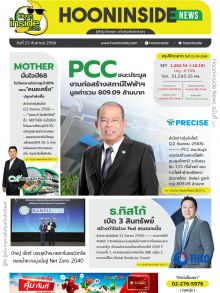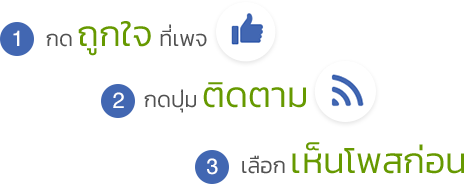สำนักข่าวหุ้นอินไซด์(25 กันยายน 2568)------------Fitch Ratings has revised the Outlook on Thailand's Long-Term Foreign-Currency Issuer Default Rating (IDR) to Negative from Stable, and affirmed the IDR at 'BBB+'.
A full list of rating actions is at the end of this rating action commentary.
Key Rating Drivers
Negative Outlook: The Outlook change reflects increasing risks to Thailand's public finance outlook from prolonged political uncertainty combined with growth headwinds from slowing global demand, a delayed tourism recovery and household deleveraging. Thailand's fiscal buffers have eroded with gross general government debt reaching 59.4% of GDP in August 2025, close to the 'BBB' category median of 59.6% and up by as much as 25pp from pre-Covid-19 levels.
Continued sizeable stimulus measures, repeated delays in planned consolidation and uncertainty on the fiscal strategy pose risks to the medium-term fiscal outlook, especially in the context of modest economic growth and intensifying demographic pressures.
Ratings Affirmed: Thailand's 'BBB+' rating is supported by its strong external finances, sound macroeconomic policy framework and relatively strong capacity to finance its government debt, with the lion's share in local currency and financed at low cost. We estimate interest costs at 5.7% of revenue, below the peer median of 9.2%. These strengths are balanced against rising fiscal challenges, still-high household leverage, and per capita income and governance scores below those of 'BBB' category peers.
Growth Headwinds Building: We expect GDP growth to moderate to 2.2% in 2025 and 1.9% in 2026 ('BBB' median: 2.7%) from 2.5% in 2024, as both domestic and global demand are weakening with frontloading of exports from US tariffs dissipating. Tourist arrivals are lower than anticipated, at 21.9 million in January-August 2025, well below the 2019 full-year record of 39.9 million. A sharp drop in Chinese visitors, in particular, raises concerns about the pace of the tourism recovery. Demand for Thai exports will slow with easing global growth and a 19% tariff imposed by the US, but steady FDI inflows may support growth.
New Elections Likely Soon: Prime Minister Paetongtarn Shinawatra from the Pheu Thai Party (PTP) was removed from office by the Constitutional Court in early September over a leaked call with former Cambodian leader Hun Sen, during heightened border tensions in July and August. A new minority government under Bhumjaithai Party's Anutin Charnvirakul has reportedly agreed with the opposition People's Party to hold general elections within four months in exchange for its support. This could lead to near-term spending pressures and adds to policy uncertainty.
Fiscal Stimulus Delays Consolidation: We expect the authorities to use most of the space available under fiscal policy rules, leading to a deficit of 4.6% of GDP in the fiscal year ending September 2025 (FY25), and 4.3% for FY26. The previous PTP-led coalition government gave cash hand-outs to parts of the population, as promised in the 2023 elections, and planned some large infrastructure projects, including a new airport near Bangkok, connected by high-speed railway. The FY26 budget has recently been approved by the senate, making a repeat of the underspending following the government change in FY24 unlikely.
Uncertain Government Debt Trajectory: Leadership change and elections imply continued uncertainty on fiscal consolidation beyond FY26. The update in December of the Medium-Term Fiscal Framework will provide some clarity on the government's fiscal consolidation strategy beyond FY26, but ambiguity will remain until formation of a new government after elections. For now, we expect government debt to stabilise at just under 65% of GDP from 2027, assuming a faster deficit reduction after FY26, but considerable downside risks to our forecast remain.
High Household Debt Falling: Household debt has fallen to 87.4% of GDP in 1Q25 from a peak of 95.5% in 1Q21 after a sharp rise during the pandemic. Around 30% of this debt consists of consumer loans, including high-yield products, which may be vulnerable if employment conditions weaken. Banks have maintained sound buffers in terms of reserve coverage and capitalisation, which should mitigate risks if asset quality deteriorates.
Fitch expects the sector impaired-loan ratio to reach 3.6% by the end of 2025. However, ongoing deleveraging also shows the macro constraints from high household debt, through a lower capacity to consume.
Monetary Easing to Continue: Disinflationary food and energy pressures have pushed headline CPI down to -0.8% yoy in August, with core inflation is still positive at 0.8%, creating room for some further Bank of Thailand (BOT) easing when a new governor takes office in October. The policy rate has been cut in total by 100bp in the past 12 months, last in August to 1.5%. We expect another 25bp cut this year and one in 2026. We expect inflation to rise gradually from 0.2% on average in 2025 to 1.6% in 2027, within the authorities' target range of 1.0%-3.0%.
Strong External Buffers: Current account surpluses averaging 2.8% of GDP in the past three decades have led to the government's strong net external asset position of 47% of GDP ('BBB' category median: -2%) and a net international investment position of 12.5% of GDP. We expect the current account surplus to slightly fall to 2.3% of GDP in 2026 from 2.8% in 2025, as lower imports from weak domestic demand will partly offset a sharp drop in exports. The external interest service of 0.7% of current external receipts is much lower than the 'BBB' category median of 5.7%.
ESG - Governance: Thailand has an ESG Relevance Score (RS) of '5' & 5[+] respectively for both Political Stability and Rights and for the Rule of Law, Institutional and Regulatory Quality and Control of Corruption. These scores reflect the high weight that the World Bank Governance Indicators (WBGI) have in our proprietary Sovereign Rating Model. Thailand has a medium WBGI ranking at 47th percentile reflecting a recent track record of peaceful political transitions, a moderate level of rights for participation in the political process, moderate institutional capacity, and a moderate level of corruption.
RATING SENSITIVITIES
Factors that Could, Individually or Collectively, Lead to Negative Rating Action/Downgrade
- Public Finances: Reduced confidence in the capacity to stabilise government debt/GDP over the medium term, for instance due to a lack of fiscal deficit reduction.
- Macroeconomic: A deterioration in medium-term growth prospects, for instance from heightened political disruption on a scale sufficient to affect tourism receipts.
Factors that Could, Individually or Collectively, Lead to Positive Rating Action/Upgrade
- Public Finances: Increased confidence in the government debt/GDP ratio stabilising over the medium term, for instance due to progress in fiscal consolidation.
- Macroeconomic: Improvement in economic growth prospects without a significant rise in non-financial private-sector debt.
Sovereign Rating Model (SRM) and Qualitative Overlay (QO)
Fitch's proprietary SRM assigns Thailand a score equivalent to a rating of 'BBB' on the Long-Term Foreign-Currency (LT FC) IDR scale.
Fitch's sovereign rating committee adjusted the output from the SRM score to arrive at the final LT FC IDR by applying its QO, relative to SRM data and output, as follows:
- External Finances: +1 notch, to reflect Thailand's external finance strengths not captured in the SRM, including its large net external creditor position.
Fitch's SRM is the agency's proprietary multiple regression rating model that employs 18 variables based on three-year centred averages, including one year of forecasts, to produce a score equivalent to a LT FC IDR. Fitch's QO is a forward-looking qualitative framework designed to allow for adjustment to the SRM output to assign the final rating, reflecting factors within our criteria that are not fully quantifiable and/or not fully reflected in the SRM.
Debt Instruments: Key Rating Drivers
Senior Unsecured Debt Equalised: The senior unsecured long-term debt ratings are equalised with the applicable long-term IDR, as Fitch assumes recoveries will be 'average' - when the sovereign's Long-Term IDR is 'BB-' and above. No Recovery Ratings are assigned at this rating level.
Country Ceiling
The Country Ceiling for Thailand is 'A-', one notch above the LT FC IDR. This reflects moderate constraints and incentives, relative to the IDR, against capital or exchange controls being imposed that would prevent or significantly impede the private sector from converting local currency into foreign currency and transferring the proceeds to non-resident creditors to service debt payments.
Fitch's Country Ceiling Model produced a starting point uplift of +1 notch above the IDR. Fitch's rating committee did not apply a qualitative adjustment to the model result.
REFERENCES FOR SUBSTANTIALLY MATERIAL SOURCE CITED AS KEY DRIVER OF RATING
The principal sources of information used in the analysis are described in the Applicable Criteria.
Climate Vulnerability Signals
The results of our Climate Vulnerability Signal screener did not indicate an elevated risk for Thailand.
ESG Considerations
Thailand has an ESG Relevance Score of '5' for Political Stability and Rights as World Bank Governance Indicators have the highest weight in Fitch's SRM and are therefore highly relevant to the rating and a key rating driver with a high weight. As Thailand has a percentile rank below 50 for the respective Governance Indicator, this has a negative impact on the credit profile.
Thailand has an ESG Relevance Score of '5[+]' for Rule of Law, Institutional & Regulatory Quality and Control of Corruption as World Bank Governance Indicators have the highest weight in Fitch's SRM and are therefore highly relevant to the rating and are a key rating driver with a high weight. As Thailand has a percentile rank above 50 for the respective Governance Indicators, this has a positive impact on the credit profile.
Thailand has an ESG Relevance Score of '4' for Human Rights and Political Freedoms as the Voice and Accountability pillar of the World Bank Governance Indicators is relevant to the rating and a rating driver. As Thailand has a percentile rank below 50 for the respective Governance Indicator, this has a negative impact on the credit profile.
Thailand has an ESG Relevance Score of '4[+]' for Creditor Rights as willingness to service and repay debt is relevant to the rating and is a rating driver for Thailand, as for all sovereigns. As Thailand has track record of 20+ years without a restructuring of public debt as captured in our SRM variable, this has a positive impact on the credit profile.
The highest level of ESG credit relevance is a score of '3', unless otherwise disclosed in this section. A score of '3' means ESG issues are credit-neutral or have only a minimal credit impact on the entity, either due to their nature or the way in which they are being managed by the entity. Fitch's ESG Relevance Scores are not inputs in the rating process; they are an observation on the relevance and materiality of ESG factors in the rating decision. For more information on Fitch's ESG Relevance Scores, visit www.fitchratings.com/topics/esg/products#esg-relevance-scores.



















